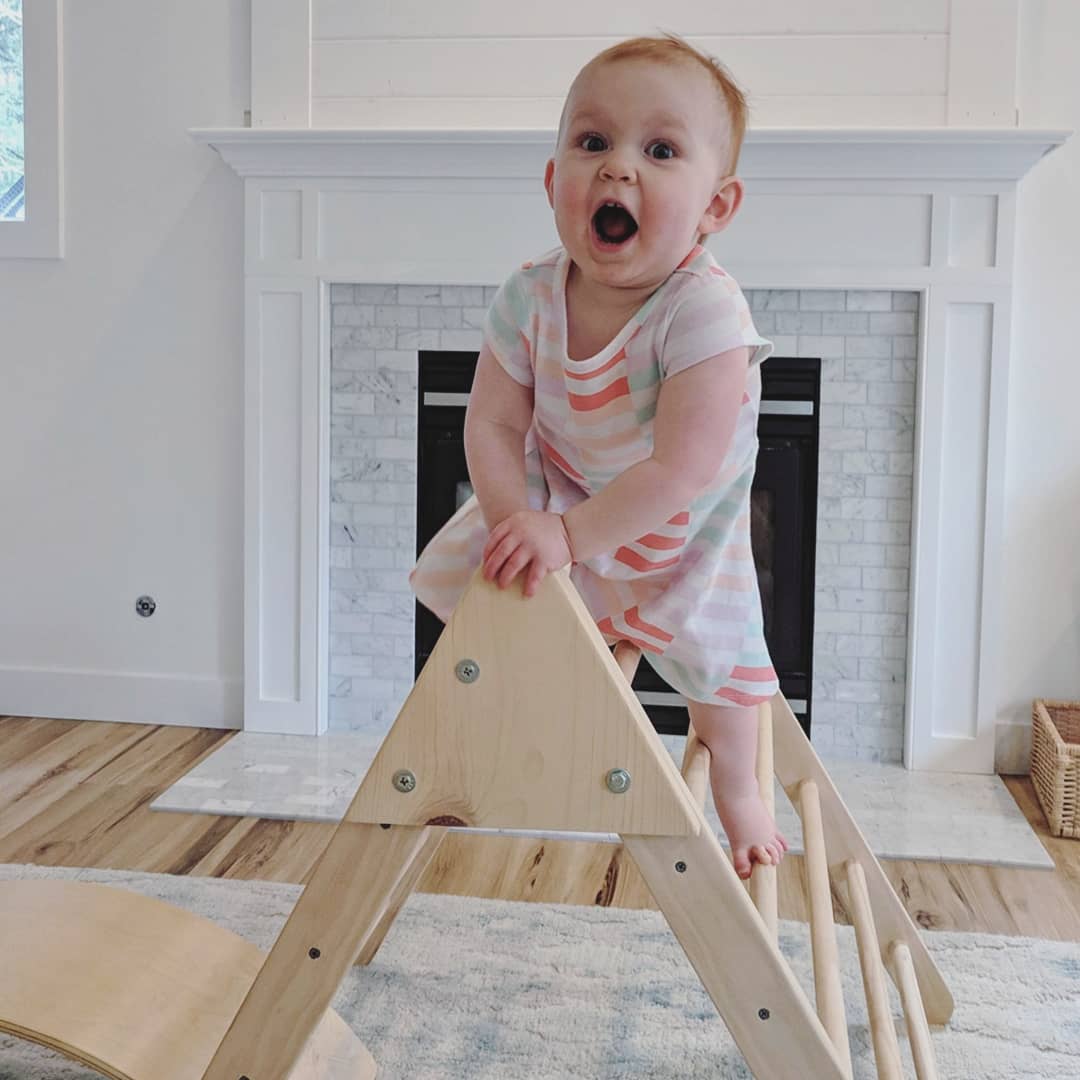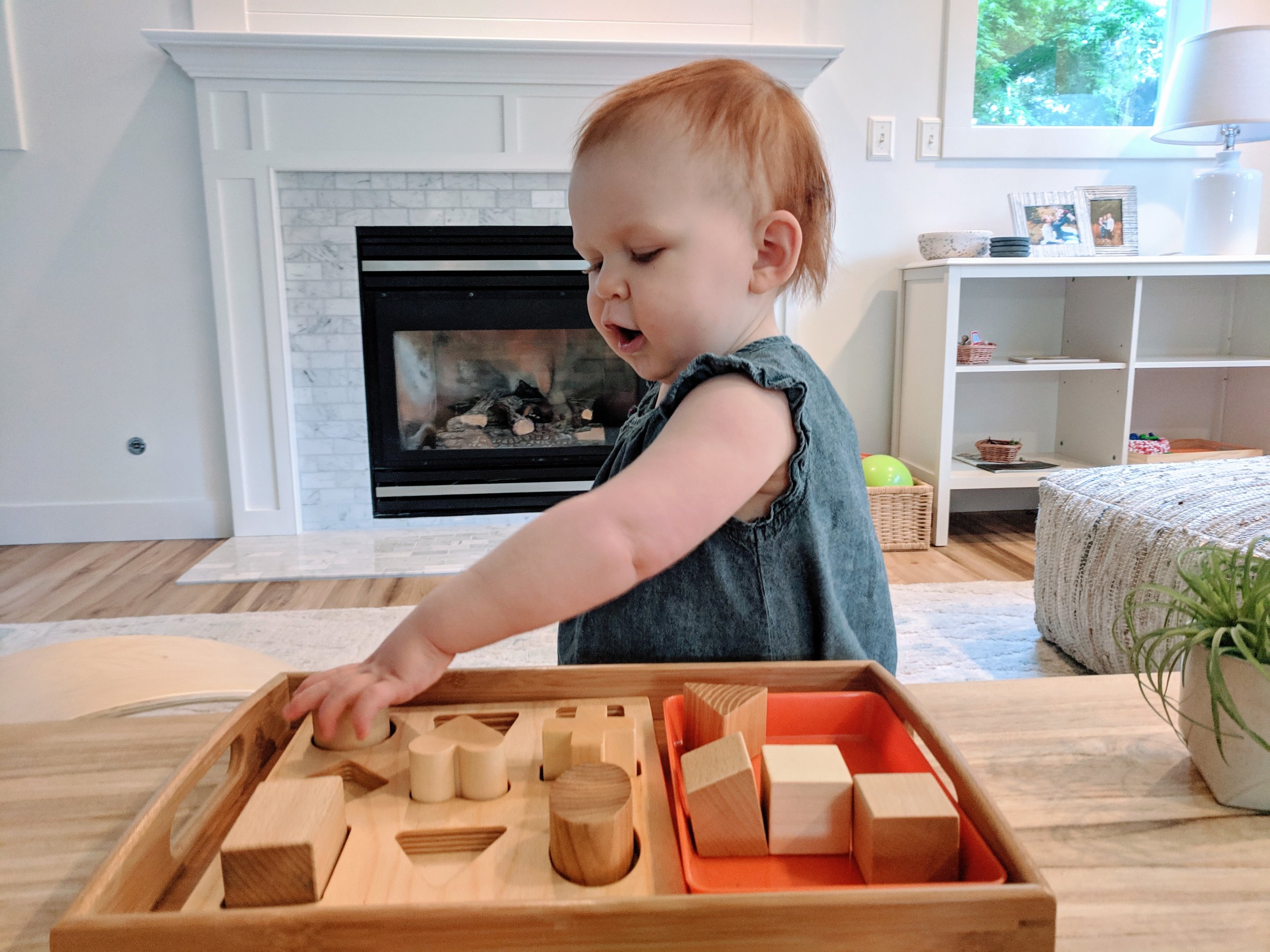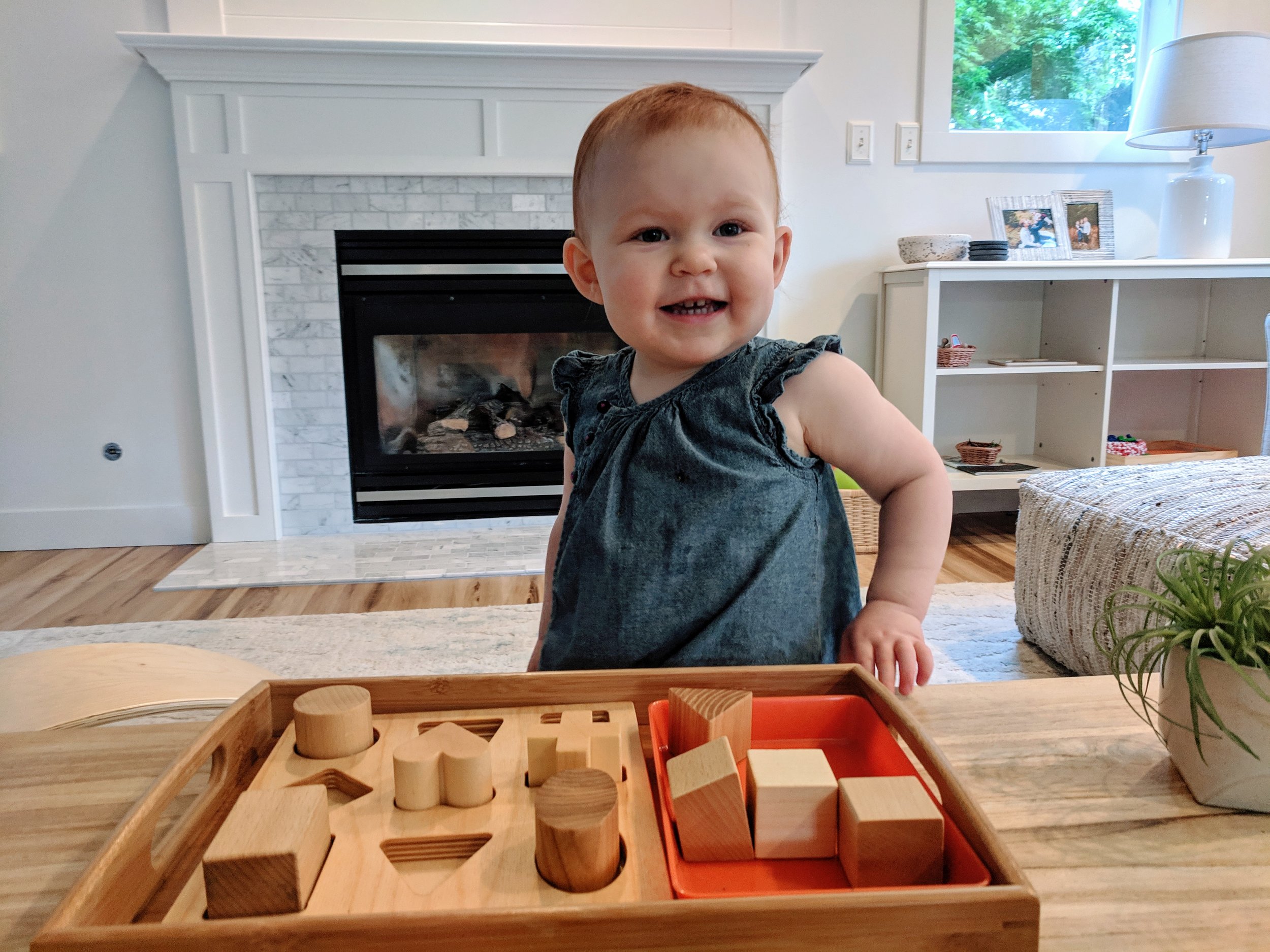Praise vs. Acknowledgment in a Montessori Home
Montessori in Real Life
Praise (or lack thereof) is a topic that often comes up in Montessori discussions, and in my Instagram messages. I do not say much out loud in my videos of D working, which is typically intentional. When she is concentrating, I do not want to interrupt, and especially not with my own judgment of her work. Most of all I try* to avoid “Good job!” That is not to say I don’t think it or feel proud when she matches the flowers correctly, or climbs over the Pikler triangle like a champ. But I want her to be able to focus on her own efforts and feelings about it rather than focus on mine. When she’s finished with her work and looks up to me, I acknowledge it with something like “You matched all the flowers to the cards! You look really happy” or “You climbed over the Pikler for the first time!” and she feels the pride all on her own.
* we all say good job sometimes, and that’s okay :)
In a Montessori environment, it is the norm for adults to acknowledge accomplishments and encourage efforts rather than praise or offer rewards. As mentioned above, the idea is for children to learn how to take pride in their own accomplishments, rather than only put in effort for adult praise or external rewards. Rewards take away a child’s intrinsic motivation, or desire to work on something just because it feels good to do so. In contrast, Acknowledgment allows a child to assess their own work, and feel satisfied or proud for themselves. Additionally, acknowledgments or encouragements are specific to the activity or effort at hand, rather than vague like “I’m so proud of you!”. The specificity (e.g. “You are working really hard on putting on your shoes by yourself!”) makes our comments more meaningful to our children.
Acknowledging the effort our children put into something rather than the end result also encourages them to seek out challenges. Conversely, praising our children for a job well done often leads them to avoid challenges for fear of making a mistake and not being “good enough”. Carol Dweck, a developmental psychologist at Stanford coined the terms “growth mindset” vs. “fixed mindset” to describe these differences. A child with a growth mindset believes that they can work hard at something to get better at it; a child with a fixed mindset believes they are either good or bad at something, and they can’t change that. Unsurprisingly, children with growth mindsets are more motivated, confident, and high-achieving.
How do we help our young children develop a growth mindset? It comes back to how, or if, we praise. Instead of praising or rewarding the outcome, we can praise or acknowledge the effort or process. We want to convey to our children that we notice and value how hard they work at something, and the steps they took to get there. We want them to know that mistakes are not just okay, but necessary, in learning a new skill. This really helps me think about how I parent D and how we can all help toddlers become self-assured and challenge-seeking children.
Lastly I’ll just share with you some of the phrases we use at home to help cultivate a growth mindset and acknowledge or encourage efforts rather than praise or assert my judgment:
It looks like you really enjoyed that work!
I can see you worked really hard on that activity.
You did it (all by yourself)!
It’s so nice to see how proud and happy you are.
You put your work away, so now we can go make dinner!
That was really helpful how you set your own table.
For my favorite parenting/Montessori philosophy books, check out the end of this blog post!
















